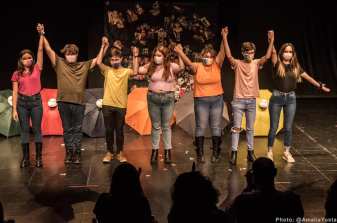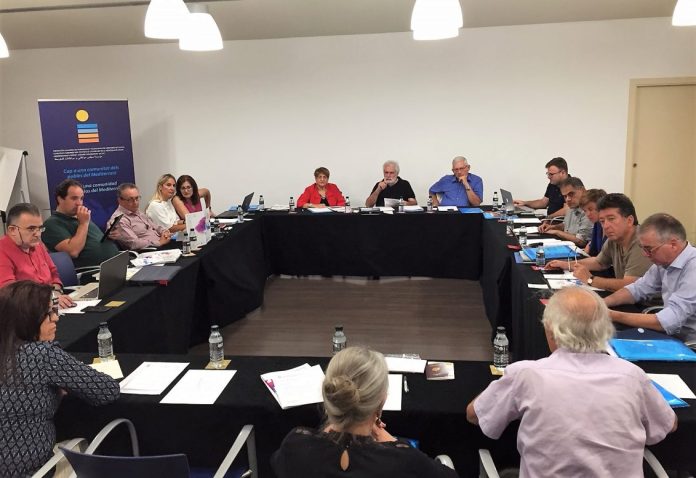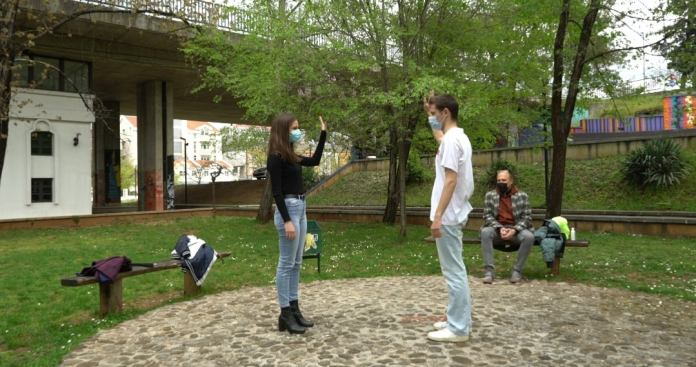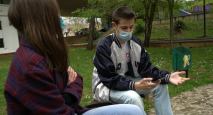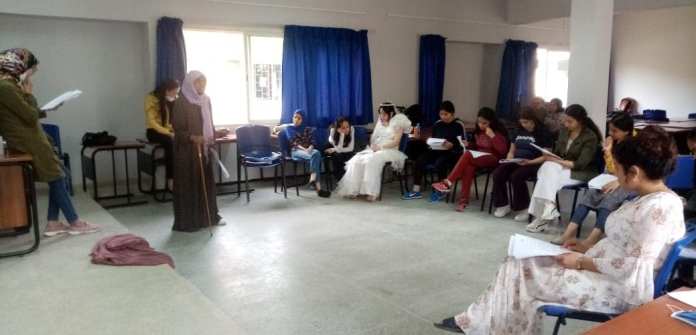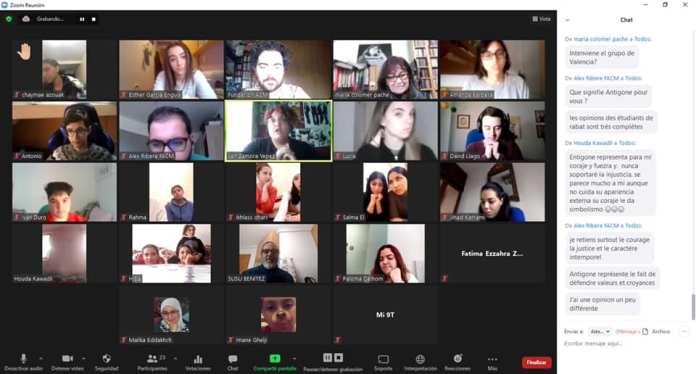Statement of the FACM Advisory Council
Valencia, 13 May 2021
“THE MEDITERRANEAN: WHERE IS THE EUROPEAN UNION?”
The 25th anniversary of the Barcelona Process coincided with the massive global disturbance caused by COVID-19, creating an urgent need for cooperation, and a strengthening of regional cooperation and multilateralism.
On this somber 10th anniversary of the Arab Spring, the Advisory Council of the ACM Foundation remains concerned about the grave problems that continue to plague the Mediterranean, especially – but not limited to – its southern shores.
The current situation is marked by:
– Historical conflicts, such as the events in Israel-Palestine and Western Sahara, which prevail with serious geopolitical and human rights issues at stake and no just solution in sight.
– There are also various governmental transitions that remain incomplete (in Libya, Syria, and further to the east in Yemen) while authoritarian regimes continue to impose their will against popular demand and calls for liberty are left unattended and even oppressed with journalists and citizens imprisoned, and the silencing of certain means of communication.
– Questions of migration continue to be fundamental to the region. Despite repeated calls from civil society, the European Union has not come forth with coherent policies (on immigration or human rights) to deal with the issue in which it has responsibilities and a major role to play.
– The general decline in democracy in the EU is dangerous, affecting not only countries in the east ut also the southern Mediterranean. Forms of “demopathy” more and more evident provoke phenomena of populism and authoritarianism with a decline in human rights and the right to education, attacks against gender equality, against free information ….
– The average socioeconomic circumstances of Mediterranean citizens are experiencing an alarming decline alongside a rise in inequality within societies.
– People have also paid a heavy price during the pandemic in terms of cases, hospitalizations, and deaths, and now in securing access to vaccines.
– “Gender issues” remain prevalent in both the north and south of the Mediterranean. Violence against women and abuses against minors and vulnerable people (towards both nationals and migrants) demonstrate how much work remains in establishing states, which protect the rights of all.
– Each of these situations are amplified by chaotic evolutions linked to the actions of many countries whose presence in the region is marked more by their own interests than those of the countries and people for whom they claim to act, including: the United States, Russia, Turkey, Qatar, the United Arab Emirates, Saudi Arabia, as well as Iran.
– Equally problematic is the ever-present political and sociopolitical fragmentation among the southern Mediterranean countries as evidenced by the intense activity and support for radical non-state actors, such as: Hezbollah in Lebanon, Kurdish para-state forces, active radical groups in Syria and Libya, and terrorist networks affiliated with al-Qaeda or the Islamic State.
– Climate change is the region’s forgotten problem. Its effects include food shortages, and drought, leading to displacement and the creation of environmental refugees.
The Advisory Council of the ACM Foundation does recognize some promising developments of recent years. There have been democratic advances in Tunisia, although it has not come easy and there are still economic and social challenges to overcome. The situation in Libya remains fragile, but thanks to a process guided by the United Nations, important steps have been taken towards bringing stability to the country. The return of Greece and Turkey to the negotiating table cannot be forgotten as the two sides try to resolve their differences over maritime borders. Turkey is also making an effort to reestablish dialogue with Egypt to repair their tense relationship following the overthrow of President Morsi by a military coup.
The trends outlined above confirm that the present situation is grave. The Advisory Council of the ACM Foundation is once again raising the alarm and calling for a spirit of responsibility, dignity, and mobilization from the highest level to act in these areas of priority in the South Mediterranean. This a moment for citizen’s resistance.
The ACM Foundation remains convinced that there are various avenues for action in the region, but it is also important to demonstrate coherence and effectiveness. Because of this, the Council calls for the application of the following points:
– The United Nations acts as a strong leader and with uncompromising legitimacy in its continued commitment to development in the region and on conflicts;
– Bodies that are dependent on the UN or that act in coordination with it for socio-economic and/or humanitarian purposes are also helped and strengthened in their actions. These include the UNHCR, UNDP, and also the Red Cross, UNRWA, and Doctors Without Borders, along with other humanitarian NGOs who practice in the various countries of the region or in the Mediterranean Sea;
– The European Union, in particular, finally pairs its enormous financial investment in the Mediterranean with a strong political role, and that it continues to uphold the principles of the rule of law while putting forth proposals of action rather than giving lessons;
– The European Union should also endeavor, as far as possible, to address and/or limit the contradictions of some of its member states, whose strategies deployed in the southern Mediterranean reflect national interests and objectives rather than collective and altruistic ones;
– The European Union should ensure that the principles of operation of the Euro-Mediterranean mechanism in force (Union for the Mediterranean) are clarified with regard to all these elements. This could increase its means of action while at the same time strengthening Mediterranean socio-economic prospects;
– The European Union should take into account already existing initiatives aimed at prosperity in the Mediterranean and consider them to be complementary to its own initiatives. These initiatives are diverse and all too often overshadowed by other actors. They would stand to benefit from EU collaboration and support rather than ostracization. The European Union could devote itself to supporting and enhancing cooperation both at the intergovernmental level (such as the 5+5, NATO Mediterranean Dialogue, OSCE Mediterranean Dialogue, CIHEAM, RAMOGE), as well as bilaterally (delimitation of maritime responsibility zones, fishing zones, training sectors, maritime transport) or at the sub-State level (universities, associations, regions, cities);
– The European Union should live up to its principles and convictions and put forth a coherent, humane, and pragmatic approach to dealing with migration issues and the legitimate missions of many women, children, and young people hoping to find a better future;
– Alternatives to the current ways of functioning should be thought out and conceived more effectively, be it in relation to the exploration of renewable energy sources to replace fossil fuels, greater digitization of the economy, the production and distribution of vaccines on a larger scale, and the improvement of development policies which serve the needs of all citizens of the Mediterranean. The recognition of COVID-19 vaccines as a ‘public good’ would be a useful step forward.
The Advisory Council of the ACM Foundation also calls on the Parliamentary Assembly of the Mediterranean (APM) and MedCités, two of its Mediterranean institutional partners, to continue their actions and initiatives in favor of dialogue and collaboration with Mediterranean citizens and members of civil society, as pillars of democratic power and popular sovereignty.
Finally, the Advisory Council has begun its collaborative work in organizing the IX Meeting of the FACM, set to take place in Valencia, Spain in November 2021, during which a citizen’s account of the “Mediterranean Springs” will be established.
The Advisory Council of the ACM Foundation will continue to deploy its efforts and put its resources at the service of ideas and projects that allow us to think about a better future, in peace, justice, freedom, and progress. However, such actions will be futile if they are not part of a collective vision determined to move events in the right direction. Therefore, the ACM Foundation will remain active and in close contact with all its partners and organizations that share a similar vision: that the Mare Nostrum remains Mater Nostra.
Valencia, Spain, 13 May 2021.







